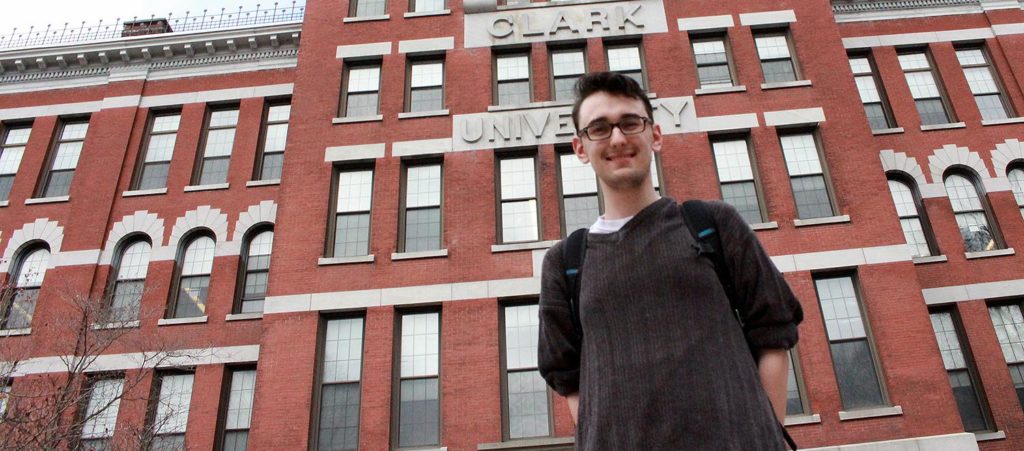
When Justin Woods ’18 returns home to North Haverhill, N.H., he doesn’t typically talk to people in the same way, or about the same topics, as he does on the Clark University campus. This phenomenon of navigating between two identities in two different spaces is called “code-switching” — a common experience for first-generation college students like Woods. It “feels alienating in some ways,” he confesses.
“I don’t necessarily speak about the same things when I’m at home because people aren’t always interested in them,” Woods says. “I find it surprising and interesting that we, in essence, become two different people at the same time. How do you manage that? What does it do to your personality?”
He’s determined to find out.
Funded by the Steinbrecher Fellowship Program, Woods is conducting research among students who are the first in their families to attend college.
He says Clark plays an important role in helping students adjust to the higher-education setting. The University offers a pre-orientation program known as ACE (Academic Clark Excellence Summer Institute Program), which helps smooth the transition from high school to college for first-generation and ALANA (African, Latino/a, Asian and Native American) students.
“Both ACE and the Office of Diversity and Inclusion were really helpful in assimilating me into the Clark culture,” says Woods, who became an ACE mentor. “The whole spirit of Clark prompts its students to question and to go further. I think that was a big factor in my wanting to pursue this project.
Woods started out on the pre-medical biochemistry and molecular biology track but switched to sociology with a concentration in public health after taking an introductory class in preparation for the Medical College Admission Test.
This summer, Woods worked as a scribe in the emergency department at UMass Medical. “Getting out there in the community and being supported to do that changed me,” he says. “There is no one path at Clark. You can evolve as a person and as an academic. Your identities can collide, and that is really fostered here.”
With Debra Osnowitz, assistant professor of sociology, as his adviser, Woods began conducting his Steinbrecher Fellowship research by surveying a first-generation student from each class year. He asked them questions about how they chose Clark, what challenges they’ve faced, and what they’ve experienced as first-gen students.
One striking similarity that emerged from their responses is the prevalence of code-switching.
“People feel like when they’re at Clark they have to speak in a different way than they do when they’re at home,” Woods says. “At Clark, there is this expectation that people speak in an academic ‘register,’ using facts and figures in their classes or in everyday conversation. But when they go home, if they speak in that same register they are perceived as speaking down to their parents or family members.”
Woods acknowledged this is something he does unknowingly, and his research helped him become more aware of his own behavior as a student living in two worlds.
He plans to continue his research and share it with the Clark community to illustrate how the college experience can be different for first-generation students. He’s hoping to develop his findings into an honors thesis. In the meantime, he has created a First-Generation Student Union, which is working on community outreach events.


